
Surfing can be an exciting and fulfilling sport, but it is important to always keep an eye on your safety! If you keep these tipps about safety at surfing and surf responsibly, you will make the most of your surf adventure. That way you don’t only protect yourself but also the others. Enjoy surfing!
5 tips about safety in surfing for beginner surfers
You are new on the surf board or are thinking about trying surfing for the first time? Then you should know some things about safety in surfing. Because it is important that you and the other surfers can leave the water after the surf session without injuries. In this blog we want to give you the most important safety tipps for surf beginners, to make sure, everyone is safe and sound.

Safety in surfing – Tip #1 – Choosing your surf spot
The choice of the surfspot is one of the most important safety aspects in surfing. Don’t overestimate your abilities and choose a surf spot that suits your surf level. You are still a beginner surfer and your safety should always be your top priority. So rather choose a beachbreak over a wave that breaks over a reef. And ideally a beach, which is monitored by a lifeguard. You should also ask a friend, a surf coach or another surfer who knows the spot to briefly explain the spot and not just enter. It could be that there are currents which you can’t see from outside. Beside the current you should also take the wave size and the conditions as well as the tide into account. From the beach the waves are easily underestimated. As a surf beginner you should always be in hip deep white water. Make sure the waves are not bigger than yourself. Once you have informed yourself about the spot, you should of course also familiarize yourself with the material.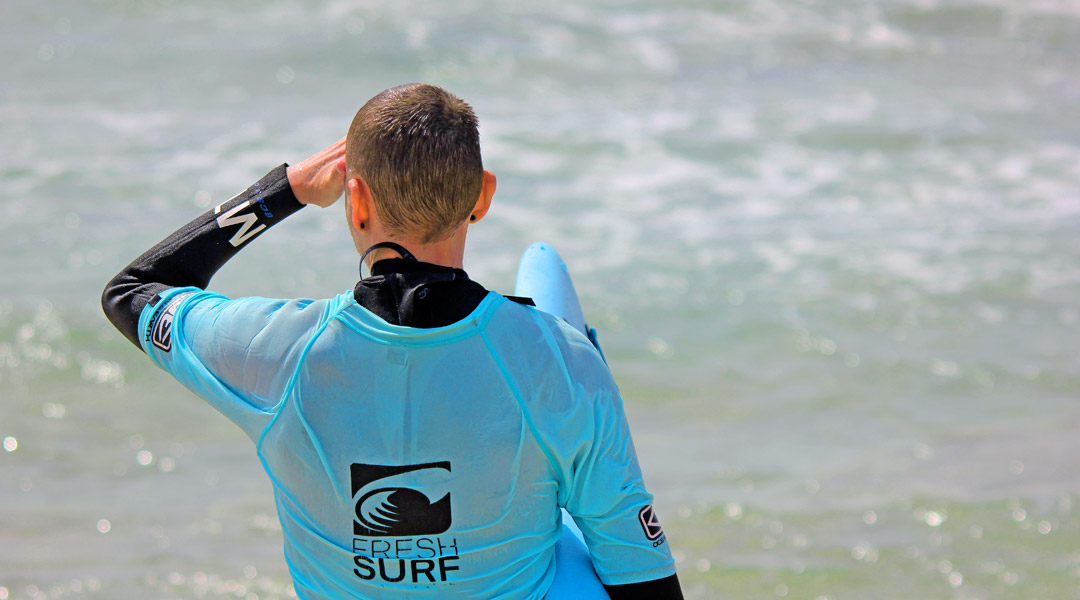
Safety in surfing – Tip #2 – Handling your board in the water
To make sure you don’t hurt yourself or others in the water you should know a few things about your surfboard and the handling of the board. First, it is important that you as a surf beginner choose a board which suits your size and your weight. It is also always a good idea to use a softboard as a beginner surfer. Treat your surfboard just like your best friend. Handle the board with care and treat it well. Most softboards have a handle with which you can easily carry the surfboard. Once arrived in the water, you should hold your board at the nose and leave the fins behind you. Turn the surfboard 180° just before the wave and lie on it to catch the wave. If you got the wave and surfed it, take care when jumping from the board. Don’t let your board fly away to do a spectacular exit. Your board measures about 2 meters and the leash as well. So, if you let go of your board, it might hit another surfer. If you do fall off the board uncontrollably, protect your head to at least protect yourself from injury.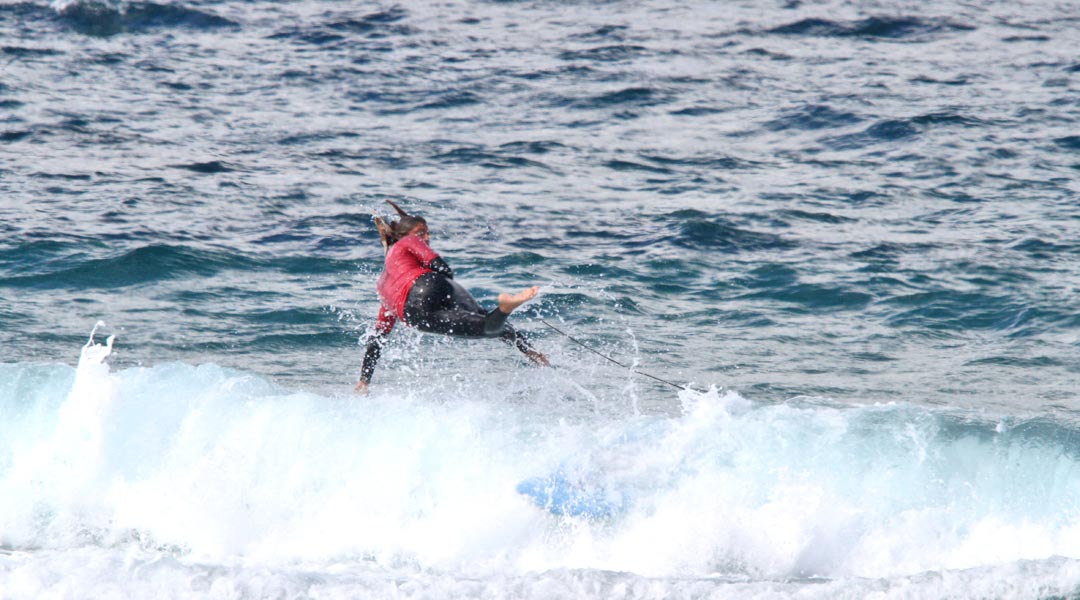
Safety in surfing – Tip #3 – Protect your head
It takes a while until you learn as beginner surfer how to jump from your board the right way. At the beginning surf novices often feel a little helpless when “wiping our” and are thrown around in the white water (some call it the “washing machine”). And sometimes even experienced surfers feel the same. Even if you learned how to get out of the water there will always be situations where you are not fully in control. That is part of surfing. The ocean dictates what happens, when you loose control. But if there is one thing you can do in most cases it is to protect the most important: your head. If you protect your head with your hands and your underarms, you can avoid possible injuries from hitting the board or the ground. Slide out of the water with your hands first before you stick your head out of the water. We know you want to catch your breath as quickly as possible, especially after a really nice wipeout. However, it’s important to put your hands over your head first to make sure you don’t hit your head on the surfboard when you come up for air.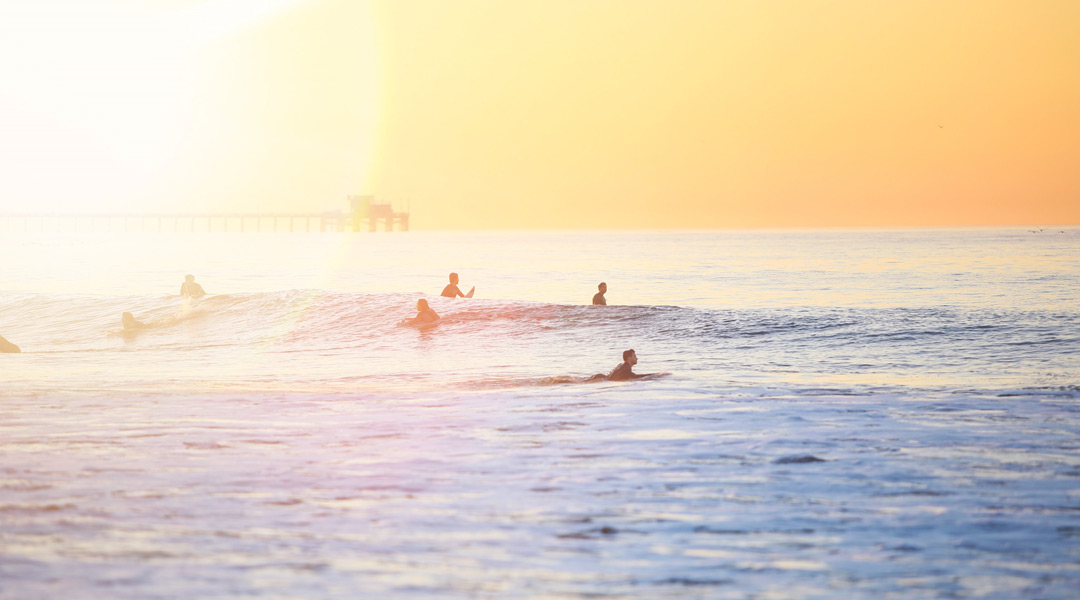
Safety in surfing – Tip #4 – Keep the distance
When your waiting for the next wave look for your own place in the line-up. Make sure that there are always at least a few meters distance between you and the other surfers. And, very important, never sit directly behind (or in front) of other surfers. When waiting for a wave you should always observe the open sea to see what is happening. Like that you don’t only see what the other surfers are doing but also what kind of waves are coming towards you. The most accidents between surfers happen because they either didn’t keep the distance or were not paying attention. That is why you should make sure you know the rules about the right of way in surfing before your first surf session. Do yourself and the other surfers the favour and avoid stress in the water.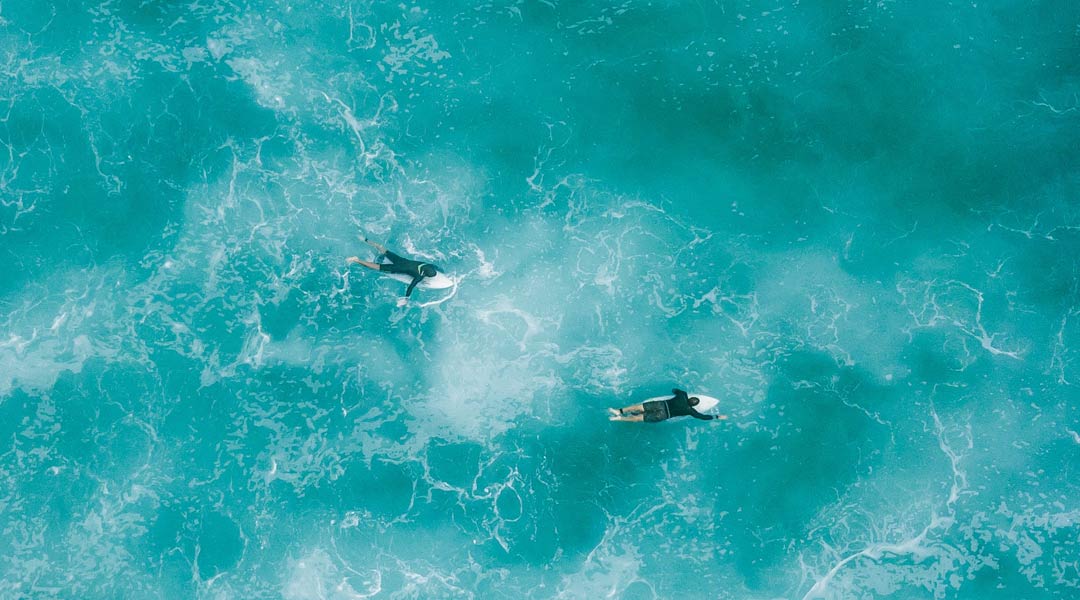
Safety in surfing – Tip #5 – Don’t panic and know the emergency signals
What ever happens in the water – one of the most important tips is not to panic! Sure, that’s easier said than done. If you’ve learned some surf theory beforehand, you’ll at least have learnt how to react in certain situations. One thing which lets you panic quite quickly as a beginner is the current. Should you get trapped in the current try to stay calm. It is important to paddle sideways and parallel to the beach out of the current. If you are underwater for a little longer after a strong wipeout, don’t rush, but try to count backwards from 23 slowly and calmly. Most of the time you won’t even get to 20. If you really do need help, it is important to know the emergency signal in the water. To do this, raise a hand clenched into a fist upwards as quickly as possible. As soon as another surfer or the lifeguard spots you, they will rush to your aid.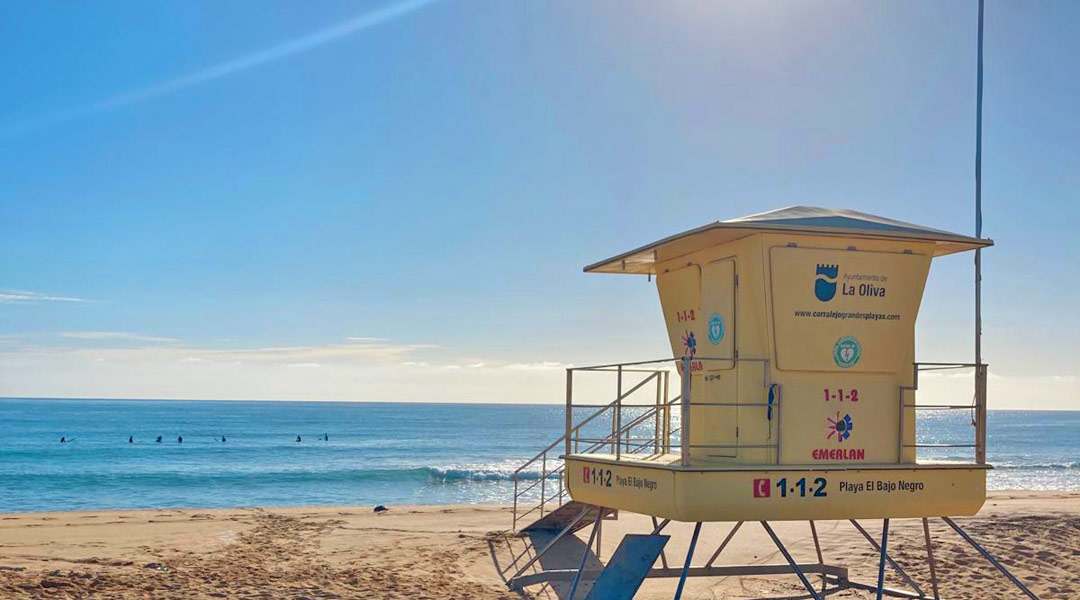
Safety in surfing – Tips for beginners
To you familiarise yourself with surfing safety beforehand, is not the worst idea. After all, surfing is a high-risk sport. Nature should not be underestimated and, as we all know, is different every day. Assess yourself, your abilities and your surroundings realistically, be considerate of other surfers in the water and communicate with them, then nothing should happen to you.
